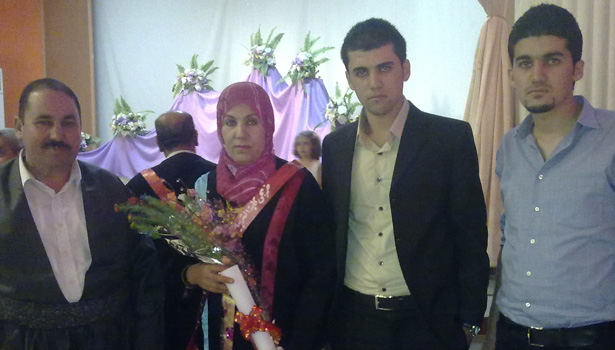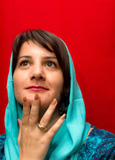Remembering: Arabization in Kirkuk
Aug 5, 2010

Karokh Nuraddin, 22, is a budding journalist. He lives in Erbil, Iraq, working as a translator for satellite television and for International Kurdish Press, a magazine published in Erbil and London. Karokh spent the first 12 years of his life in Kirkuk, which continues to be a fighting ground for ethnic groups vying to control the city's resources and cultural identity.
Throughout his childhood, Karokh believed that Kirkuk was the most dangerous city in Iraq. As an adult, he has moved back to the city and is watching it slowly grow as its future remains undecided.
Karokh doesn't remember much about Kirkuk from his childhood because he and his family were forced from their house during the Arabization policy instituted by Saddam Hussein's regime.
"The Iraqi government brought Arab families from Southern Iraq and replaced the Kurdish families with the Arab ones. Kurdish people were forced out [of their homes] but for Arabs, the government gave them money, they gave them land and positions to bring them to Kirkuk," Karokh said.
His grandfather had two houses that Arab people settled in and continued to live in throughout Saddam's regime.
Later, when the regime collapsed in 2003, Karokh's uncle paid the families money to move back to Southern Iraq and they left his family houses. But Karokh's family didn't go to their old house; they bought a new house in Kirkuk where they continue to live today.
During the years of Arabization, Karokh left Kirkuk and moved to Erbil, where he lived until he was 15. Then he returned to Kirkuk. He says he still remembers that day, June 15, 2003. "It was difficult because I had just made new friends in Erbil -- good friends whom I had to leave, probably forever because I haven't seen most of them again. I remember I was in the back of the lorry which carried our stuff back home, I remember feeling like my eyes were full of tears and I cried."
Kirkuk was supposed to be different after the American invasion. Karokh had heard that the city had become a free land for Kurdish people, especially for those who had been displaced during Arabization. His family was one of those who dreamed about going back to Kirkuk to see the free city. But Karokh saw something different that day when they entered town.
"My dad and I went to Kirkuk, we saw the people, we saw the looting, we saw everything," he said. They were looking for a new house, so returned to the city several times in the same month. "People were just looting the city and destroying everything."
Despite this, his father was determined to move home. Eventually, Karokh said, "We bought a house from an Arabic family from Nasria. We bought the house from them and our family went back to our city."
Kirkuk continues to make news -- the name is synonymous with explosions and war. But after seven years of living in the city, Karokh is beginning to feel safe in his neighborhood.
"None of us has been victimized yet, but it is still dangerous. You don't feel safe everywhere. I feel safe in the Kurdish areas of the city but it is not safe at all in Arabic areas or in the south or west of the city, not safe at all."
The danger, Karokh says, comes not from the many ethnicities in the city, but from varied political beliefs. "There are different nationalities that live in Kirkuk but they don't have any problems with each other. There is no problem among ethnic groups there, they all live in peace and brotherhood, it is just that there are some disputes between political parties. But the people, they are very friendly."
Karokh believes that it is these political parties who will decide the future of Kirkuk. "I don't think the fate of the city will be determined soon. Some people have called the city a powder keg, which might explode at any time, so all political parties should participate to decide the future of the city."
Above Photo: Karokh Nuraddin (far right) poses with his family in a recent photo. (Photo courtesty Karokh Nuraddin)

Add your comment